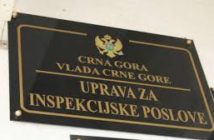A case study report “Gornji Ibar” Rozaje refers to a former big company involved in wood processing industry in Rozaje, dealing mostly with the company AD “Gornji Ibar”, as the largest company that was formed by division of once single company.
The case study shows how a company with two thousand employees and undisputed development prospects, was completely destroyed in less than a decade, while its workers were repeatedly damaged and now live mostly as beneficiaries of family maintenance support. The workers lost not only their jobs but also part of the assets of the company. Since the company’s assets are located in the center of Rozaje, its property was converted into a building site, which multiplies its value. Subsequently, in 2015 the government of Montenegro decided to accept the offer of the Turkish company interested in buying and leasing the site of the factory “Gornji Ibar”.
The former socially-owned enterprise “Gornji Ibar” was a leading giant in the Montenegrin wood industry for years and as a major business was the backbone of the development of Rozaje and the whole region. The company was transformed back in 1994, when the capital of the company was estimated at the then DM 67.8 million.[1] At the time, the company employed about two thousand workers, and when international sanctions on former Yugoslavia were imposed the company’s production dramatically fell, and in 2002 it employed as few as 575 workers.
A period of drastic fall in production coincides with the division of once single company, when a number of separate companies emerged. Thus, among others, separate companies AD “Gornji Ibar” and “Sumarsko preduzece AD Rozaje” were established. However, it is important to stress that the fall in production is also linked to the problem of obtaining government concessions for the exploitation of forests and the development of the illegal sector in the procurement of wood as the basic raw material.
When it comes to the ownership in the company, the data show that the end of 2002 the state funds had 51 percent in AD “Gornji Ibar“, employees had 38 percent, whereas the citizens after the mass voucher privatization held 7 percent stake and Montenegrobanka held 2.9 percent stake. At the same time, the capital of AD “Gornji Ibar”, after the official currency in the country was changed, was estimated to be €28.8 million.
Comlete case study download HERE (PDF)

